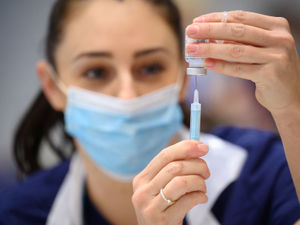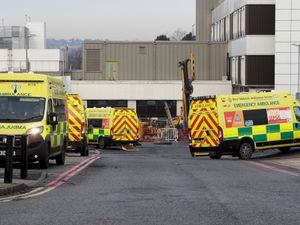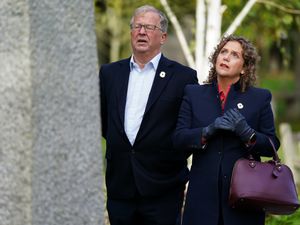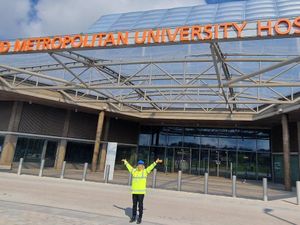Ambulance pressure immense but service winter plan 'is robust'
It will continue to be a difficult winter, but the NHS will step up to the challenge.
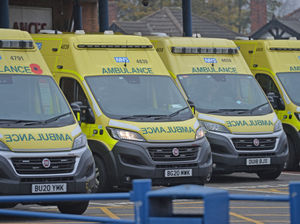
That was the pledge made by a boss at West Midlands Ambulance Service, which is being hit hard by soaring demand for help.
High numbers attending A&E services and the ongoing impact of Covid are having a knock-on effect for ambulance services.
Bosses at West Midlands Ambulance Service have apologised repeatedly in recent months for not being able to respond to some patients as quickly as they would have liked. And ambulances have been facing long waits at hospitals to handover patients, with some well exceeding targets of 15 minutes.
NHS figures show more than half of patients taken to hospital in an ambulance during the first week in December faced handover delays of more than half-an-hour in some parts of the West Midlands.
It has even led to ‘cohorting’ being used where one ambulance crew monitors a number of patients so that other crews can be released to attend calls.
Mark Docherty, director of nursing and clinical commissioning at WMAS, has warned that health services are preparing for an “exceptionally difficult” winter. But he also stressed that WMAS has “robust” plans in place, with staff numbers bolstered and a strategy to use its fleet of ambulances to the ‘maximum effect’.
“It’s going to be exceptionally difficult for everybody but we are well prepared,” he said. “We have challenges we’ve never had before. We know Covid numbers are rising.
“This winter we also have the combination of the Christmas period and the bank holidays falling together. I believe the staffing will be the biggest pressure in the NHS.”
He said the ambulance service was now starting to see a “stabilisation” in activity from the high demands earlier in the year but it is not being complacent.
“In the first phase of Covid, demand went down for a number of months – the normal day to day accidents tailed off,” he said.
“The second part of Covid everyone was going back to the normal stuff, so activity went up. We’ve seen high activity in the first half of the year. The last month we’ve seen a stabilisation of that activity, but some of it is unpredictable.”
He said staff have also been forced to deal with threats and verbal abuse while carrying out their daily jobs.
In September, WMAS revealed some of its call handlers had even reported being called ‘murderers’ and told they would be accountable if patients died while waiting for treatment. Others have been sworn at or threatened with physical or sexual violence aimed not only at themselves, but also their families.
“We have seen horrendous stories of how people are treated in the NHS,” said Mr Docherty.
“The call handlers are getting a lot of it and the paramedics too because it might be that an ambulance is late and they are taking it out on them.
“These are people who are doing their best to help. They are working their socks off.
“From the first day of the pandemic they have been putting themselves on the frontline. They may be giving up their Christmas and New Year in order to deliver the best patient care possible. It’s really disheartening for them. I would say to the public I know it’s difficult but please be kind.”
It emerged earlier this month that WMAS is taking more than three hours longer to respond to urgent calls than it did in 2019.
For category three calls – urgent problems that require treatment and transport to hospital – the average waiting time in October was four hours. This was three hours and five minutes longer than the figure for the same month in 2019, and 50 minutes longer than the national average in 2021.
For category four calls – non-urgent problems that require transport to hospital – waiting times surged to four hours 47 minutes, up by three and a half hours from 2019 and one hour longer than this October’s national average.
The national standard states that all ambulance trusts must respond to 90 per cent of category three calls in two hours, and the same proportion of category four calls in three hours.
According to official figures WMAS lost 28,925 hours due to handover delays in October 2021. In October 2019, a total of 8,214 hours were lost. In a bid to reduce delays the service has deployed paramedics in control rooms to work with ambulance crews.
Bosses say that as a result, in September over 12,000 of more than 20,000 category three and four calls received saw patients diverted away from requiring an ambulance.
Health bosses have also said that people can help reduce pressures over the winter by getting their Covid and flu jabs, following the Covid rules and contacting NHS 111 or visiting NHS online to find the right service in non life-threatening emergencies.

